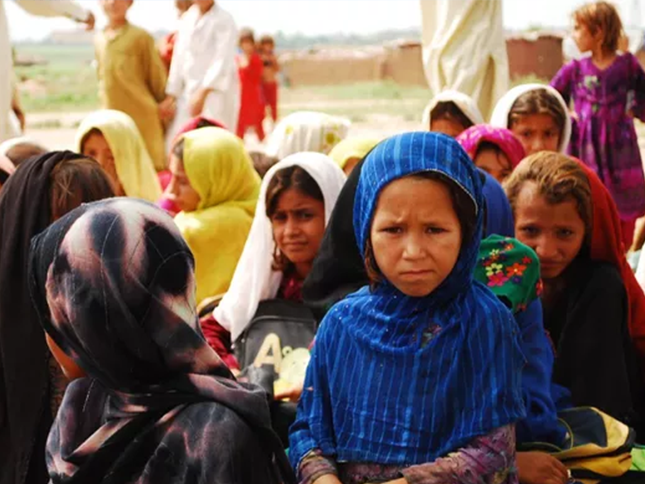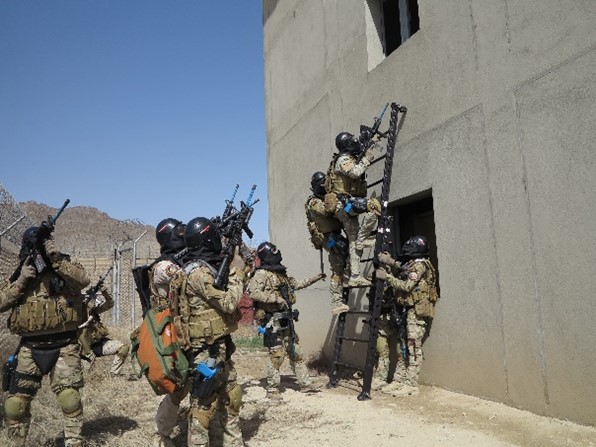
Our Mission
To help protect, provide humanitarian support and recovery efforts for those left to fend for themselves. We have a belief, a creed, and a promise to “never leave our brothers and sisters behind”. Those who worked alongside us at the Joint Afghan Training Center (JATC), including the instructor cadre, interpreters, and others, earned that trust and belief. Now is the time to keep that PROMISE.

In collaboration with Project Exodus Relief, Rafiq – Friends of Afghans is announcing a new way that you can help our Afghan allies and their families survive the winter.
Join the Cause! Use the download link below to print flyers to distribute in your local community.
If you share this link with people inside the country your will severely hamper our efforts.
Protect & Secure
Support
Recovery
About Us
We are the U.S. Mentors previously assigned to the JATC. Most are retired military special forces operators, or federal, state, and local law enforcement who worked side by side with our Afghan counterparts training Afghan national security personnel in support of the war on terror. The Mentors had extensive war zone experience, were well versed in Afghan religious, cultural, and tribal issues, and sensitive to the integration of all these issues with JATC mission requirements.
Our Afghan interpreters worked with Mentors on a daily basis, and were critical to our mission success. Given their higher education, understanding of various tribal practices, and common American habits, they were often in a position to help Mentors avoid situations that had the potential of having life threatening consequences.
Our instructor cadre came from several different Afghan national security forces. These security forces had high public visibility due to the nature of their missions, and it made them most vulnerable to compromise, attack or assassination by members of the Taliban, al Qaeda, or the Haqqani Network. The success of their highly dangerous missions were representative of the high level of knowledge, skills, and abilities developed at JATC, and applied in combat and security assignments. U.S. Mentors often trusted them with our lives.



Operational Environment
Memorandum’s of Understanding (MOUs) between the U.S. and Afghanistan governed administrative and operational elements of JATC’S mission. While at JATC, the Afghan instructor cadre were trained, directed, housed, fed, and managed by JATC leadership and mentors. Additional MOUs provided for a performance and tenure-based stipend, paid by JATC.
Though not formally “employed” by the U.S. Embassy, ATA, or JATC, the MOUs called for long term assignments, and JATC operational and administrative authority over the Afghan staff. Command and control mechanisms included a formal chain of command, time and attendance requirements, code of conduct, performance appraisals, leadership training, results-based accountability, gender recognition, a security screening program, and the Professional Development Stipend Program.
Up until the Taliban takeover, the Afghan instructor cadre conducted virtually all phases of ATA training delivery to the standards of the global ATA Program. With only a small U.S. staff, JATC would have been unable to complete its mission without the support of a dedicated, loyal, and technically proficient Afghan instructor cadre. Daily, they worked together with mentors to deliver arguably among the best national security training in Afghanistan.
Security / Threat Issues
llThe Afghan staff were confronted with threats on a daily basis. They daily commutes were “public,” in that there was public visibility to their daily arrivals and departures onto Afghan government facilities. They always traveled incognito, with no identifying information as to their employment and JATC. Due to fear of disclosure, friends and neighbors were unaware of their profession, and even among families, typically only the wife was aware of their employment.
Over the years, these Afghan instructors helped train tens of thousands of Afghan personnel from various agencies and regions, and were known as critical partners in the fulfillment of the JATC Mission. In addition, JATC gender-inclusion initiatives, including both integrated female staff and students, were considered an anathema to Taliban gender practices.
Over the course of their assignments to JATC, a number of Afghan instructors, interpreters, and staff were identified and threatened by various terrorist groups. Many of them were forced to change their residences, often more than once, and in a few instances, were attacked more than once. Similarly, there were many instances of their children being identified and harassed in school, forcing their parents to remove them from school, change residences, attempt to place them in a new school where they were not previously known, or simply home school them. In many of these occurrences, the children were permanently traumatized, with no hope of mental health support.
Since the Taliban takeover August 15, the personnel files for all Afghan instructors (and other staff) assigned to JATC have been compromised, including personal and professional identifiers, residences, phones, relatives, and in some cases, biometric information. This has led to an increasing number of phone calls and visits by the Taliban to their residences, identifying them as government employees who are required to report to the Taliban. More threatening, they have been identified by the Taliban as security personnel who served in security or combat positions against the Taliban, or as trainers of national security personnel whose mission was to identify, locate, and destroy the Taliban and other terrorist organizations. Consequently, many have sold all their possessions, abandoned their residences, and are moving their families to different locations on a night-to-night basis. More ominously, our group has confirmed that some of our “safe houses” have been compromised and searched by the Taliban, and that neighbors and relatives are being threatened, assaulted, or bribed in an effort to locate our Afghan colleagues. A developing pattern of deception is the Taliban claiming the identities of others, professing friendship or forgiveness, seeking their “return to work,” but has been met with public executions.
Their capture, public humiliation, torture, and killing are among the highest of priorities for the Taliban. Our network has confirmed that this priority is ongoing and increasing, and has already resulted in a number of public torture and killings of Afghan students and security personnel connected to JATC, and security forces charged with the defense of Afghanistan. Three + years later, the humanitarian situation remains dire and uncertain
More recently, we have had several successes in helping three of our Afghan colleagues somehow find their way through the complex and exceedingly laborious vetting and clearance process being conducted by the U.S. Departments of State and Homeland Security. One was among the last of our SIV (Special Immigrant Visa) applicants who served faithfully to the day before the takeover, helping U.S. staff prepare to evacuate and helping safeguard sensitive material that was likely to otherwise fall into the Taliban’s hands. He was arrested and tortured for weeks, and his home, car, and virtually all of his family assets were seized before he was finally released.
Of the two other (non-SIV) Afghan colleagues who were extremely fortunate to leave Afghanistan, one worked in our critical camp external security team, and the other was a female liaison officer representing a highly respected and U.S.-trained unit that was renowned for their battlefield performances. As a female officer and tribal minority, she was extremely fortunate to have been accepted into one of the refugee programs.
Though Afghanistan is clearly in the rearview mirror for most Americans, the SIV program, and to a lesser degree the refugee program, offer some small hope for our colleagues left behind. Unfortunately, at the current rate of processing and clearance by the U.S. government, it has been estimated that it will take many years to make a modest impact on those awaiting acceptance to the U.S.
In spite of those not very promising predictions, Rafiq, Friends of Afghans, continue to provide some degree of humanitarian support to our colleagues left behind, and we continue to be most grateful for your support. We will not abandon them.
In the News
Service members look to Trump to restart evacuations of Afghans who aided US forces
Veterans groups are urging President Donald Trump to make exceptions for Afghan allies who are now barred from entering the United States under executive orders, including the families of active-duty service members left behind following the 2021 withdrawal from Afghanistan. At least 200 service members’ families are among thousands more in limbo following the suspension of the U.S. Refugee Admissions Program, according to #AfghanEvac, a nonprofit, veteran-led coalition that has worked to evacuate Afghans who assisted U.S. forces during the 20-year war. Another executive order barring the distribution of foreign aid has halted services for Afghans seeking special immigrant visas, which provide a path for legal entry.
Thousands of Afghans who helped the US lose access to critical resources following Trump directives
Thousands of Afghans who worked directly for or on behalf of the US government in Afghanistan have been cut off from critical resources and face huge uncertainty over whether they’ll be able to travel to the United States following moves by the Trump administration to halt foreign aid and bar federally funded help according to multiple sources.
ICC Seeks Arrest of Afghan Leaders for Persecution of Women
The International Criminal Court (ICC) will seek arrest warrants for senior Afghani Taliban leaders accused of persecuting women “on gender grounds,” the court’s chief prosecutor announced Thursday, calling the extreme restrictions on women’s work, education, and liberty “a crime against humanity,” France 24 reported.
Exclusive-Trump to pull nearly 1,660 Afghan refugees from flights, say US official, advocate
WASHINGTON (Reuters) -Nearly 1,660 Afghans cleared by the U.S. government to resettle in the U.S., including family members of active-duty U.S. military personnel, are having their flights canceled under President Donald Trump’s order suspending U.S. refugee programs, a U.S. official and a leading refugee resettlement advocate said on Monday.
The Taliban say they will close all NGOs employing Afghan women
The Taliban say they will close all national and foreign nongovernmental groups in Afghanistan employing women, the latest crackdown on women’s rights since they took power in August 2021.


